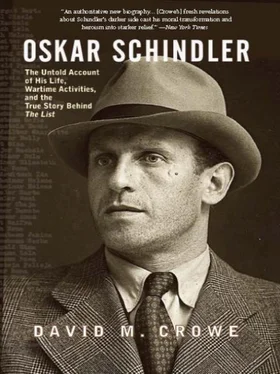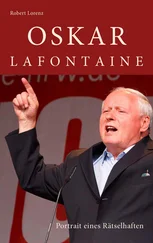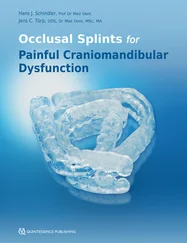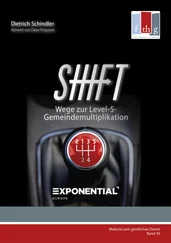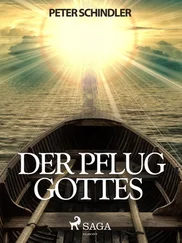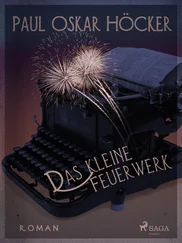After Seyß Inquart’s departure, Dr. Josef Bühler, who testified at Frank’s trial and was himself later tried and executed in Poland for war crimes, ran the day-to-day affairs of the General Government as its state secretary (Staatssekretär). Bühler oversaw the twelve (later fourteen) major administrative divisions of the “Frankreich.” The central administration of the General Government was divided into major divisions (Hauptabteilungen) that dealt with education, railways, postal service, the economy, and so forth. Because these divisions were similar to those in the Reich, German officials in Berlin and elsewhere often went directly to the General Government’s divisions to do business, thus bypassing the power-hungry governor. Bühler made matters worse by occasionally setting up offices that conflicted directly with the work of the General Government’s major divisions. 97
The General Government was divided into four, and then later, five districts: Kraków, Lublin, Radom, Warsaw, and Galicia. Each district was ruled by a Gouverneur, who was usually a Party member, and a civilian Amtschef. Each district’s governor enjoyed an absolute local authority that occasionally conflicted with the interests of the General Government. During his five years in Kraków, Oskar Schindler had to deal frequently not only with General Government officials headquartered in Kraków but also with the Kraków district’s governor, SS-Brigadeführer Otto Gustav Freiherr Wächter and his successors, SS-Brigadeführer Dr. Richard Wendler and Dr. Curt Ludwig von Burgsdorff. 98
Frank’s efforts to wield absolute control over the General Government were complicated not only by the bloated administrative system he tried to govern but also by his limited authority over key elements in the Nazi dictatorship—the SS and the military. Though Frank was able to hold his own with the Wehrmacht, he was, according to Hans Umbreit, “on a losing ticket from the start” when it came to Himmler and the SS. Himmler was the Reich Führer-SS and Chief of the German Police (Reichsführer-SS und Chef der Deutschen Polizei). He had under him the newly created Reich Main Security Office (RSHA; Reichssicherheitshauptamt ), Germany’s new super police organization, and was also Reich Commissioner for the Fortification of the German Volk-Nation (Reichskommissar für die Festigung des deutschen Volkstums). This latter position gave Himmler considerable authority to press his claim as the guardian of police and political authority in the Nazis’ new “racial laboratory.” Because Himmler was much closer to Hitler than Frank when it came to dealing with the “Jewish question,” the Reich Führer’s position in the General Government was further strengthened. 99
Himmler’s principal representative in the General Government was the Higher SS and Police Leader (HSSPF; Höherer SS- und Polizeiführer ) . The HSSPF oversaw the various branches of the Order-Keeping Police (Orpo; Ordnungspolizei ) and Sipo (Security Police; Sicherheitspolizei ), which included the Gestapo, Kripo ( Kriminalpolizei ; criminal police) and the Border Police (Grenzpolizei). The HSSPF had under him subordinates who oversaw SS and police matters in the five districts of the General Government. During his five years in Kraków, Oskar Schindler not only had to deal with two General Government HSSPFs (Friedrich Wilhelm Krüger, 1939–1943; Wilhelm Koppe, 1943–1945) but also with the Kraków district’s HSSPFs (Karl Zech; Schedler; Julian Scherner, 1942–1943; and Teobald Thier). 100
Originally, Himmler saw the HSSPF as the overseer of the various police forces and SS units in areas under German control. During the war, he tried to expand powers of the HSSPF to include authority over all political and racial matters in the Third Reich. Consequently, Himmler and his subordinates became Frank’s principal competitors in the General Government during Frank’s long years of rule there. 101
The Wehrmacht and the Armaments Inspectorate in the General Government
Because Frank had no authority in military matters, the Wehrmacht was less problematic to Frank than Himmler and the SS. Frank had the greatest difficulties with General Blaskowitz and played an important role in his dismissal. Blaskowitz was succeeded by Generalleutnant Curt Ludwig Baron von Gienanth, who held the title of Military Commander in the General Government (Militärbefehlshaber im Generalgouvernement) and, in 1942, Military Commander of the General Government District (Wehrkreisbefehlshaber im Generalgouvernement). In 1943, General der Infantrie Siegfried Haenicke replaced Gienanth as commander of the General Government military district. 102
The relationship between Frank, the HSSPF, and the military was always tense, particularly after the outbreak of war with the Soviet Union in 1941 and the transformation of the General Government into the prime killing center of the Final Solution, the German plan to mass murder of all the Jews of Europe. Though we now know that the Wehrmacht played more of a collaborationist role in this mass murder campaign against Jews, the deadliest military complicity took place in occupied parts of the Soviet Union. Regardless, the Wehrmacht regarded the General Government as an important staging area for its war with the Soviet Union and resented the conflicting goals of the SS and its various police operatives, who came to see the General Government less as a war zone than as a killing field. 103
Oskar Schindler’s success in protecting and saving his Jewish workers in Kraków and Brünnlitz centered around his close ties with Wehrmacht officers in Kraków, Berlin, and elsewhere. As previously mentioned, his ties within Admiral Canaris’s Abwehr were essential to his work. Equally important, however, were his links to the Wehrmacht’s Armaments Inspectorate (Rüstungsinspektion) and Himmler’s Security Police, Sipo. On three occasions after the war, Schindler specifically thanked his friends in Abwehr, the Armaments Inspectorate, and Sipo for their help not only in aiding his Jews but also for arranging to have him released after his three arrests during the war. In his letter to Fritz Lang in 1951, Oskar explained their motives. He said that the supportive officers in Abwehr and the Armaments Inspectorate were “partly anti-Nazi, or at least opponents of the SS and its methods.” He added that they were “on the side of Canaris during the ever-widening gap between the Abwehr and the SD.” 104
The person he always mentioned first in his postwar statements about helpful Wehrmacht officers was Generalleutnant Maximillian Schindler, the head of the Armaments Inspectorate in the General Government. As the war with the Soviet Union lengthened, the military viewed the General Government, with its large human labor resources, as an important element in war production. And key to Wehrmacht war planning in the General Government was Oskar Schindler’s namesake, General Schindler. Though not related to Oskar Schindler, the Sudeten German businessman let everyone he dealt with in the General Government think that he and General Schindler were relatives; indeed, some thought that Oskar was General Schindler’s son. The fictitious tie between the two men worked to Oskar’s advantage, though Maximillian Schindler and his Sudeten German namesake had very little in common. Born in 1881 in Bavaria, Maximillian Schindler had served as an infantry officer in World War I. According to Oskar, General Schindler later was a German delegate to the League of Nations and also served as Military Attaché to the German embassy in Warsaw. In September 1939, General Schindler became the OKW’s representative for industrial matters in Poland (Industriebeauftragter des OKW in Poland) and then head of the Armaments Inspectorate of the General Government (Inspektor der Rüstungsinspektion im Generalgouvernement), with the rank of General. In 1944, he became the head of the Armaments Inspectorate West (Rüstungsbeautragter West). He settled in Munich after the war and died in 1963. 105
Читать дальше
